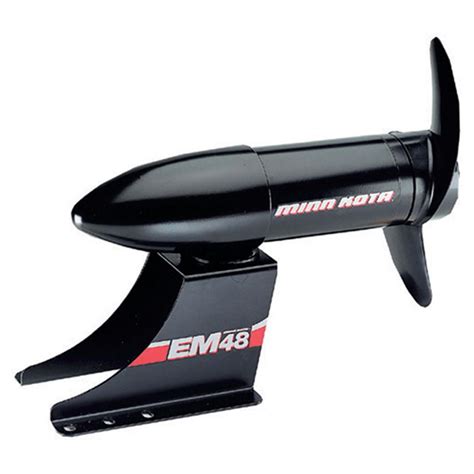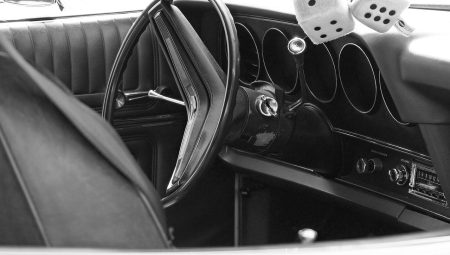Discover the advantages of trolling motors, including electric options, mounting benefits, selection tips, and essential maintenance for optimal performance.When it comes to enhancing your boating experience, engine-mounted electric trolling motors stand out as a game-changer. These innovative devices not only provide the necessary thrust but also offer unmatched maneuverability, making them a favorite among fishing enthusiasts and recreational boaters alike. In this blog post, we’ll delve into the essentials of trolling motors, exploring their definition and the numerous advantages electric motors bring to the table. We’ll discuss the benefits of mounting these motors directly to your engine, ensuring a seamless integration of power and control. Furthermore, we will guide you in choosing the right engine-mounted motor for your needs and share crucial maintenance tips for keeping your setup in top condition. Whether you’re a seasoned angler or a casual boater, understanding engine-mounted electric trolling motors will elevate your time on the water.
What is a trolling motor?
A trolling motor is a type of propulsion system specifically designed for small boats and fishing vessels, providing anglers with the flexibility to navigate through waters quietly and efficiently, as it operates silently and causes minimal disturbance to the marine environment, thus allowing fishermen to approach their targets without spooking the fish.
This motor typically features a battery-powered electric motor mounted on the boat’s bow or transom, which can be controlled by a handheld remote, foot pedal, or integrated into the vessel’s steering system, enabling smooth directional control while maintaining a low speed – a crucial aspect for effective fishing trips.
Furthermore, different types of trolling motors are available on the market today, ranging from basic models that provide essential functionality to advanced versions equipped with GPS capabilities, allowing for precise positioning and tracking, thus greatly enhancing the fishing e
Advantages of electric motors
When considering the various types of propulsion systems for boats, particularly in the context of engine-mounted electric trolling motors, it becomes evident that electric motors offer a multitude of advantages that not only enhance the boating experience but also promote sustainable practices. One of the most significant benefits of electric motors is their whisper-quiet operation, which allows anglers and boaters to navigate through waterways without disturbing the local wildlife or alerting the fish, thereby increasing the likelihood of a successful catch.
Additionally, electric motors are renowned for their efficiency and low operating costs, as they require significantly less maintenance compared to traditional gasoline engines, thus translating into reduced overall expenditures for boat owners. The absence of fumes adds an extra layer of comfort, making these motors an excellent choice for those who wish to ensure a cleaner environment while enjoying their time on the water.
Moreover, it’s important to highlight that electric trolling motors offer precise control and responsiveness, providing boaters with the ability to maneuver their vessels with ease and accuracy. This level of control is particularly beneficial when fishing in areas with heavy vegetation or intricate structures, where a gentle approach is necessary to navigate through tight spots without damaging the surroundings. Overall, the advantages of electric motors make them an appealing op
The benefits of mounting on the engine
Mounting an electric trolling motor directly onto the engine of your boat can provide several distinct advantages that cater to both experienced anglers and casual boaters alike, which inevitably allows for a more efficient and enjoyable experience on the water, especially in terms of maneuverability and control.
One of the key benefits of this setup is the enhanced stabilization that comes from having a motor mounted to an already stable platform, allowing for improved handling when navigating through strong currents or choppy waters, thereby increasing the overall safety of your outing while enhancing the precision of your movements.
Furthermore, installing an electric motor on your engine also allows for better space utilization within your boat, as it frees up valuable deck space that would otherwise be occupied by a standalone motor, and this can be particularly beneficial for smaller boats where every inch counts; in addition, this configuration often leads to improved fuel efficiency, as the electric motor can take over at lower speeds, which in turn reduces the wear and tear on your primary engine.
Overall, the benefits of mounting an electric trolling motor on your engine are significant, making it a worthwhile consideration for any boat owner looking to enhance their boating experience.
Choosing the right engine-mounted motor
When it comes to selecting the perfect engine-mounted electric trolling motor, several critical factors must be taken into account to ensure optimal performance, compatibility, and efficiency for your boating needs. The first step in this selection process involves determining the thrust requirements, which is essentially how much pulling power you will need, and this can generally be estimated based on the weight of your boat; typically, a good rule of thumb is to have 2 pounds of thrust for every 100 pounds of fully loaded boat weight. Moreover, understanding your boat’s hull design is crucial, as different designs will respond differently to the motor’s power output, which can affect maneuverability and ease of control.
In addition to thrust and hull design, one should also consider the battery capacity and type, as not all motors are compatible with every battery, and a suitable battery will not only power your motor efficiently but also provide longevity to your outings on the water. Furthermore, the mounting position of the motor plays a pivotal role in how effectively your boat maneuvers, with certain positions providing better balance and stability, which is especially important in rough water conditions.
Finally, it is essential to keep in mind the features and technology that modern trolling motors offer, such as integrated technology for GPS navigation, spot-lock functionality, and remote control capabilities, as these advancements can significantly enhance your fishing experience and overall efficiency on the water. By carefully assessing these key aspects—thrust needs, battery compatibility, mounting options, and technological features—you can make an informed decision that ensures your engine-mounted motor meets your specific requirem
Maintenance tips for engine-mounted electric motors
When it comes to ensuring the longevity and optimal performance of your engine-mounted electric motors, regular maintenance is not just important but essential, as neglecting this crucial aspect can lead to costly repairs and diminished efficiency over time.
Begin by routinely inspecting the connections and wiring for any signs of wear or corrosion, which can significantly impact the functionality of the motor; it is also wise to clean any debris that may accumulate around the engine mount to prevent overheating and enhance air circulation.
Moreover, periodically checking the battery and charging systems is vital, as these are often the lifeblood of your motor, and replacing any worn-out batteries or ensuring that connections are secure will prevent unexpected failures during outings, thus allowing you to enjoy a worry-free experience on the water.
Additionally, don’t overlook the significance of consulting the manufacturer’s maintenance guidelines for any specific recommendations regarding lubrication and troubleshooting; keeping an organized log of all maintenance activities can also help you track the performance and condition of your motor over time, ensuring that all maintenance tasks are completed promptly.
An ounce of prevention is worth a pound of cure. – Benjamin Franklin
| Maintenance Task | Frequency | Notes |
|---|---|---|
| Inspect Connections | Monthly | Look for corrosion or loose connections. |
| Clean Debris | After Each Use | Avoid overheating and improve air flow. |
| Check Battery | Every 3 Months | Replace if necessary; ensure secure connections. |
| Follow Manufacturer Guidelines | As Recommended | Always follow specifics for your model. |
By adhering to these maintenance tips and staying attuned to the needs of your engine-mounted electric motors, you can extend their lifespan, improve performance, and ultimately contribute to a safer and more enjoyable boating experience.
Frequently Asked Questions
What are engine mounted electric trolling motors?
Engine mounted electric trolling motors are small, auxiliary motors that provide additional thrust to boats. They are typically mounted on the transom or engine bracket and are powered by electricity, offering a quiet and efficient way to navigate on the water.
What are the benefits of using an engine mounted electric trolling motor?
These motors offer several benefits, including better fuel efficiency, quieter operation, ease of maneuverability, and the ability to maintain speed in various conditions without disturbing wildlife.
How do engine mounted electric trolling motors differ from traditional outboard motors?
Engine mounted electric trolling motors are designed for slow-speed maneuvers and are generally quieter and more efficient than traditional outboard motors, which are better suited for high-speed travel.
What types of boats can use engine mounted electric trolling motors?
These motors can be used on a variety of vessels, including fishing boats, pontoon boats, and small recreational boats, making them versatile options for boaters.
How do I choose the right engine mounted electric trolling motor for my boat?
When selecting a motor, consider factors such as the size and weight of your boat, the intended use (fishing, cruising, etc.), and the motor’s thrust rating to ensure it meets your needs.
What maintenance is required for engine mounted electric trolling motors?
Routine maintenance includes checking the battery, inspecting the wiring and connections for corrosion, and ensuring the motor is clean and free of debris. Regular inspections will help maintain performance and extend the motor’s lifespan.
Can engine mounted electric trolling motors be used in saltwater environments?
Yes, but it is important to choose a motor designed for saltwater use. These models typically have corrosion-resistant materials and coatings to withstand the harsher conditions of saltwater.





